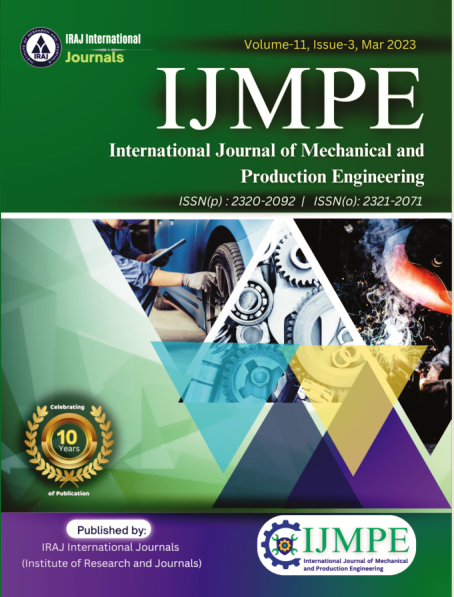Publish In |
International Journal of Mechanical and Production Engineering (IJMPE)-IJMPE |
 Journal Home Volume Issue |
||||||||
Issue |
Volume-10,Issue-1 ( Jan, 2022 ) | |||||||||
Paper Title |
Predictive Maintenance of Gas Turbines with Minimal Fault Data Using Autoencoders | |||||||||
Author Name |
Deepak Yadav, Satish Yenumula,Veera Venkata Raju Saladi | |||||||||
Affilition |
||||||||||
Pages |
17-22 | |||||||||
Abstract |
Abstract - Scheduled Maintenance at regular intervals is being practiced in Industry from very long time, which is inefficient, as effort is spent on every component of equipment/system irrespective of its health status and may lead to partial or complete shutdown of equipment during maintenance resulting in downtime. To overcome this, predictive maintenance is being adopted in every industry for reducing the unplanned downtime of the plant. Fault occurrence scenarios should be detected well ahead so that the measures can be taken to avoid the fault. Along with this, there is a need to identify the root cause of the fault which can avoid the manual intervention in analysis to find out the faulty component and rectify it. This prediction of fault ahead of time can be done using machine learning. This can be posed as a classification problem to classify the situation whether there is any sign for a fault occurrence in few instances in future. Lack of availability of all kinds of fault data has become a major challenge for supervised classification model. This has highlighted the need for unsupervised or semi supervised learning methods in this paper. Solutions using supervised approach using Boosting classifiers and semi supervised approach using auto-encoders are proposed and their performances have been compared. A solution is also proposed to identify the root cause of fault occurrence based on reconstruction error of auto-encoders. This solution would considerably reduce the unplanned downtime of the plant. Keywords - Predictive maintenance, Neural network, Deep Learning, Boosting classifiers, Gas Turbines, Autoencoders, Semi-Supervised classification, Root cause analysis | |||||||||
| View Paper | ||||||||||